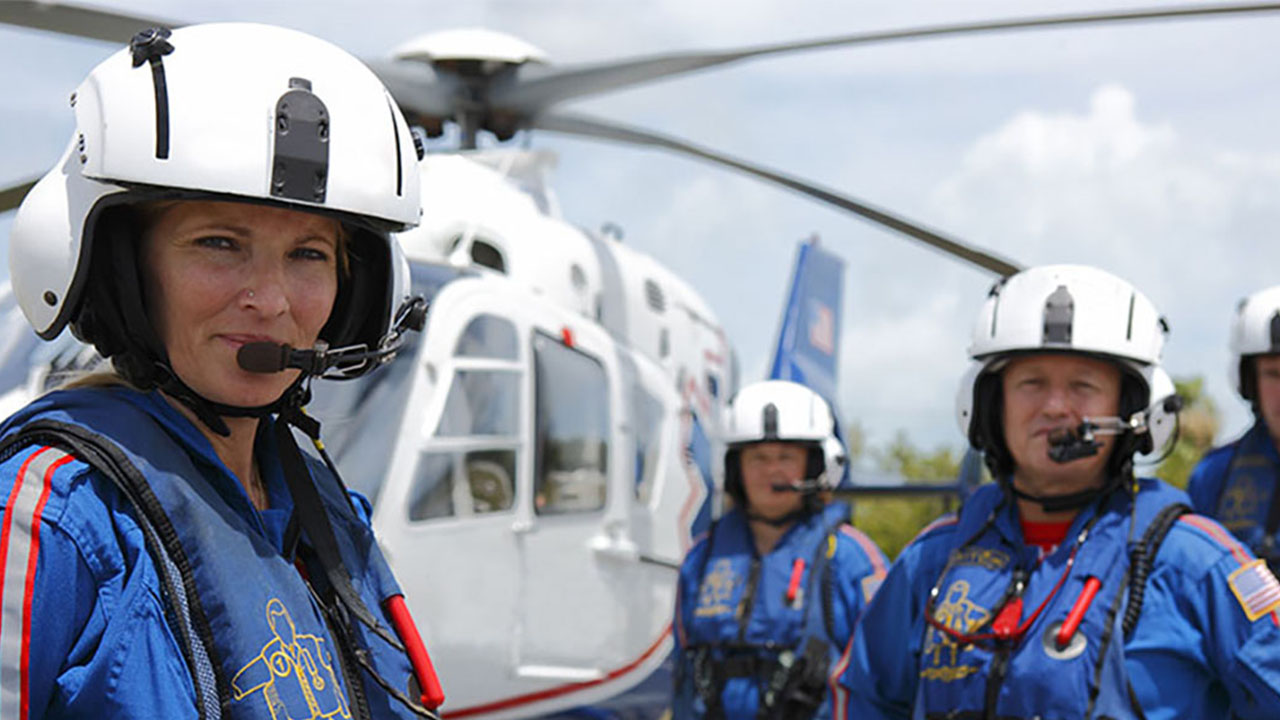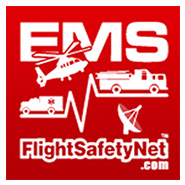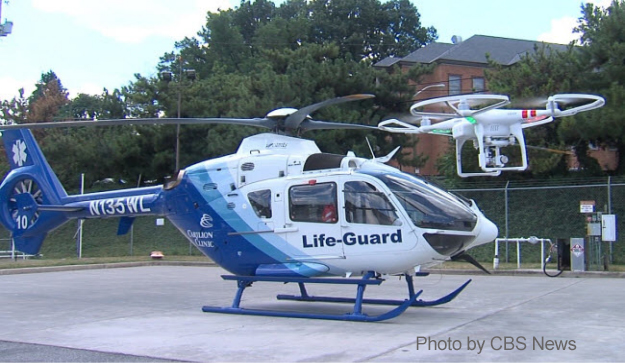What You Can Do To Help–
Naval aviation has a saying…
“All helicopter emergency procedures are written in blood.”
What it means is…
Somebody died to find out what we now know about the helicopter ..and the best way to handle a particular emergency.
Let’s hope we don’t have to write procedures for medical helicopters to avoid drones… in blood. Let’s hope we can do better.
This week medical helicopter pilots in Virgina pleaded with drone owners to stay away from airports and medical helicopters. The plea is important. And what’s even more important is what’s not being said.
Read Between The Lines
What does it mean when pilots publicly plead with drone operators? Is there anything to read “between the lines?”
Yes. Absolutely.
It means in no uncertain terms the pilots do not trust the Federal Aviation Administration (FAA) to fix the problem. It means the pilots have lost faith in the “system” that’s in place to protect them and the public they fly.
It means pilots feel they have no other choice but to bypass the FAA and go directly to the public with their concerns.
It’s a bad sign… for all of us.
And easy as it is to throw proverbial stones at agencies entrusted to protect the public…
Name calling and stone-throwing never solves the problem.
How You Can Help
Is there any way to solve the problem?
Is there anything you and I can do to help? Is there anything anyone can do to help?
Yes.
Actually, there is.
Pick up a telephone and call your elected officials. Call your congressperson and share your concerns about drones interfering with medical helicopters.
Send an email (written record) to elected officials with the same concerns.
Let’s not wait until the next air medical memorial service to voice concerns about medical helicopters and drones.
Let’s do what we can do, Right Now!
———————-
Important: Sharing or Liking this article does NOT mean you support drones. Sharing and/or liking the article is an important way to spread an important message that needs attention right now.
Do you want flight job tips and cool helicopter stuff sent straight to your inbox? Sign up for Crew Newsletter here. It’s free!



37 replies to "EMS Helicopter Pilots Publicly Plead for Help: Drone Danger Looms"
Wishing safety for all flight crews as all the latest toys that hover and fly are getting more abundant.
Stephan,
Thanks for the kind words and positive vibes. Everyone on the Flight Safety Network Team – Ground & Air – Appreciates It!
Clear Skies & Tailwinds
Honestly I begin to believe drones should be considered aircraft, and should require appropriate training and licensing–just like any other craft on the water, in the air, or on land. They are no longer a modern marvel, and they are quickly becoming much more than a nuisance.
Aircraft grounded when idiots fly drones over fire ground operations risk lives on the ground because the apparatus they depend on for support are no longer available. People can’t get out, and supplies can’t get in. But, hey, nobody cares so long as somebody sees it live on network news, right?
Drones are already a serious threat, and in an atmosphere of mistrust and open hostility toward emergency services in all venues even serious injury and death doesn’t seem to gather more than fifteen seconds of headshaking and finger-pointing. Something needs to change.
Therle,
You make some great points.
Training and licensing for drone operators (done properly) would go a long way toward making drone use safer for air medical and aviation at large.. Unfortunately, I don’t think we’ll see it happen until after tragedy occurs. It’s sad that most safety policy is reactive, and almost never proactive.
Having said that, bringing awareness to the issue is the best thing we can do right now.
Thanks for commenting.
Clear Skies & Tailwinds
I am an FAA Part 107 Drone Pilot, I do it for a living and we are just as frustrated with the Hobbyist out there breaking the rules and regulations as the Manned Aircraft Pilots are. I fly by the rules every day and sometimes that means turning a client down because they are next to an airport as well as other reasons. I also fly near and around our Med Flight helicopters, but I fly by the rules.
I contact their dispatch and give them my location, what altitude I will be at and for how long as well as radius. And I use a Visual Observer to keep an eye out. I have never had an issue. Personally as a professional I would like to see hobbyist have to have a altitude governor placed on by the manufacturer which would limit them to 200 ft. Otherwise they would have to present a Part 107 License before being able to purchase a non-governored drone.
Yes!
The manufacturers should be placing educational material with the equipment. It’s no guarantee that it will be heeded but it is a start. Many folks have no idea what is happening in the airspace around them.
John,
You’re right.
Safety and success are about shared responsibility. Air medical pilots have a responsibility to follow applicable Federal Aviation Regulations (FARs) and fly safely.
Drone operators and owners have a responsibility to fly their equipment in a safe manner.
And as you mention, manufacturers also have a responsibility to produce a safe product that is used within safe guidelines.
What has everybody nervous right now (in addition to the close calls) is the lack of oversight on the whole process. To be kind, many Americans hold low expectations in regard to the Federal Aviation Administration (FAA), and government, in general, doing the things they say they’ll do.
Thanks for your input.
Clear Skies & Tailwinds
The manufacturers put warnings all over these boxes and inside the manuals of these drones. The hobbyist just don’t want to take the time to read it and they don’t want to play pay attention to the rules. Also there software that you fly with has what is called geofencing if you’re flying in or around an area in which you’re not supposed to it throws up a warning and in the case of airports it won’t even let the Drone leave the ground if you’re close to the airport.
The manufacturer is along with the FAA are testing electronic chips to be placed inside the Drone that would notify Air Traffic Control of the drones location its altitude as well as its tail number. They’re testing it at several Air Force bases as well as several airports around the country.
Those of us that are professionals are hoping that they will have these devices ready to be installed within the next year and they will be placed in every drone from now on. Of course the problem is you have several thousand drones already out there and trying to get them to install one of these devices on the throne could be problematic. But it’s a step in the right direction. but the public needs to be educated and they need to be given a hotline to call when they see people doing stupid things with drones.
maybe you can post a link of a Petition that emails directly to Senators….
Sue,
Thanks for commenting. We appreciate your support and like your thought process. The problem we’ve seen with petitions is saturation. Congresspersons see so many that they’ve developed a kind of “petition blindness.”
We believe a more effective technique is individual phone calls and letters. When congressional staff is too busy answering calls, email inquiries, and letters to run their errands and perform their normal lapdog duties – it seems to get more congressional attention. But again, thank you for your support and your suggestion.
Clear Skies & Tailwinds
The answer to drone problems…….
Scott,
I don’t think awareness of drones is the full answer, but it’s definitely a start.
Thanks for commenting.
Clear Skies & Tailwinds
We need a law passed that drones not be flown by joe average public its so dangerous for helos n airplanes. Lets get a law passed before we have a tragedy
You know it girl, next the public will be using them to “laser” pilots of our jets or other illegal things!
Carol,
We’re definitely hoping the issue is addressed before tragedy occurs. Thank you for sharing your concerns and suggestions.
Clear Skies & Tailwinds,
Depends who you classify as Joe average public
Kenny,
You’re right. And remember the goal is not to limit anybody’s freedom or ability to fly – drones included. The challenge is finding workable solutions that keep everyone safe.
Clear Skies & Tailwinds
Need some kind of jamming device that nukes the drone and let’s it fall, totally unimpeded, to the earth below…
Fred,
Your idea would be nice. Although, the “nuclear” option usually gets people concerned. 🙂
Clear Skies & Tailwinds
I believe drones are a problem! I hope someone will out law them! They suck!
Cheryl,
We always appreciate direct and right to the point opinions. Thank you for sharing yours.
Clear Skies & Tailwinds
The topic of drones being used anywhere near the flight pattern of the ambulance helicopters should not have to be addressed. Anyone with common sense would keep away from the needed services of the helicopter ambulance service. If legislation is needed to send the message then so be it. I support the legislation.
David,
You make some good points. The challenge is that common sense is subjective in regard to drones. Different people have different opinions. I’m hoping we can all agree that safety is everyone’s first priority.
Thanks for commenting.
Clear Skies & Tailwinds
Start shooting down these drones!
Jamie,
Thanks for commenting. Shooting down drones is not the answer. Finding a way for drones to operate safely without compromising the safety or speed of EMS helicopters is the answer.
Clear Skies & Tailwinds
the idiot flying this drone needs to be charged with attempted murder for delaying the person’s life
Amy,
I hear what you’re saying and understand your frustration. Hopefully, this article will inspire enough people to call their elected officials and some positive action happens.
Thanks for commenting.
Clear Skies & Tailwinds
We have a guy in our area that likes to fly his experimental helicopter around our scenes and it causes headache because there is no communication between him and the helicopters coming in so they have to hover around and get his attention so they can land that’s not fair for the patient that’s not fair to us and it’s damn not fair to that medical helicopter pilot trying to do his job but watch out for this idiot because he doesn’t know which direction he’s going next. he also puts me in danger the drones are the least of my concern right now and I myself own one. I guess it’s just common sense
Jeffery,
Your situation is unfortunately becoming pretty typical. It’s a good example of why more awareness (an action) is needed in regard to drones. Hopefully, something positive will come from people like yourself sharing your stories. Thank you.
Clear Skies & Tailwinds
I am a Paramedic deal with rotor and fixed wing daily I also own and operate a drone. Operators of drones need proper training. We also need to find a way to let them know when a Rotor wing will be in the area. LZ can be set up anywhere at anytime and they are unknown to the general public.
Wes,
I agree with you about training for drone operators. Awareness is an important first step. Air medical programs like the one mentioned in this article are smart. A proactive approach to educating the public is a much better approach than waiting on government agencies to get involved.
Thanks for commenting.
Clear Skies & Tailwinds
As a full scale pilot and a long time proponent of unmanned aircraft I will say they CAN coexist. I know because I’ve done it. Education is the key element in this, and yes, drones should be treated as “aircraft”. The FAA made that distinction a long time ago when it removed the descriptor “model” from in front.
Also, state governments may not regulate the airspace. That has already been hashed out, so it is up to the aviation community to segregate the “hobbyist” from the “professionals”. Technology is on the horizon that will keep full scale and UA separated but until that time getting the word out in a big way is required. And yes, citing (instead of a simple warning) hobbyist who interfere with a Public Safety operation. Otherwise, the words have no teeth to make the impression!
Gene,
Excellent points.
Thanks for sharing your opinion and perspective. The FAA will never release control of airspace to state entities. I personally believe this is a good thing.
I also hear what you’re saying about technological advancements helping with the challenges. The problem with both technology and the FAA is that solutions are needed now.
Thanks again for commenting.
Clear Skies & Tailwinds
With every new technology there is a fear associated with it. I’m fairly sure that I could find a piece decrying the advent of the helicopter as dangerous to fixed wing aviation. You can’t legislate common sense. Constant awareness campaigns and training are needed. Safe flying and respect to you all.
Bruce,
You make an excellent point. We probably all need to remind ourselves of it.
Thanks for sharing your opinion.
Clear Skies & Tailwinds